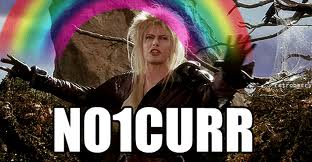Today I worked on the (currently) last revision to that pesky fantasy novella, repaired a vintage British umbrella, varnished the covers for a new mini-book, crashed a thread on AbsoluteWrite, and apparently earned the ire of an anti-AW website.
Why? Because I glanced at a trainwreck of an online debacle on another site completely, one that has even made the Guardian’s pages. And because I invoked Filigree’s Rule, and refused to engage in a pointless debate with a modern Amanda McKittrick Ros.
Okaaaay.
Let’s head this off at the pass, shall we? I will respond once, here:
Yes, AW can be a harsh, sprawling, messy site. The moderators and owner sometimes have policies I may not agree with. That’s fair. It’s a private site and I don’t make the rules. To quote from the Princess Bride: ‘Life is pain, Highness. Anyone who says differently is selling something.’
I’ve had my nose metaphorically smacked by those same mods and owner, because of positions I took. AW is not the only writing site I frequent. Yes, I have posted over 10,000 comments there in four years*. I’ve enjoyed the interaction, made good friends, learned a lot about all the different and changing ways publishing can get words in front of eyeballs, met my agent through a mutual AW friend, and sold projects through private contacts within AW. Doesn’t mean I march lock-step with everything my fellow AW-ers have said. I’ve had good friends banned or forced to leave, because of their disagreements within AW.
Nothing that’s been said to me there has ever made me suicidal or depressed. Or shattered my life. (Psst: negative or positive, posts on AW really don’t have as much weight as you might think in the outside world. And attempting to doxx your critics really only makes you look more foolish.) I have tended to either keep things objective and try reasoned discourse. Or I’ve applied the FuckYou Filters I learned in commercial art**, and walked away.
In aggregate, I’ve had many more positive than negative learning experiences on AW.
I’ve also had bad reviews and moments of doubt. I’ve worked beyond my naive expressions of Golden Word Syndrome, learned from the experience, and applied the filters the moment criticism stopped being helpful and became silly.
*I will thank that aforementioned anti-AW site for giving me the subject of Book Arts Project #300. And for seriously boosting my blog traffic.
** Good God, if you think AW critiques of businesses and writers are harsh, try Crit Week at any decent art or design school. And then try it in the incestuous maelstrom of commercial art and decor while the Powers That Be are trying to bury their competition at the next SOFA or High Point Show. There, you will see crying, bargaining, begging, soulless manipulation of incredible designs to fit this season’s banal theme colors, and real despair. Do that for a few years. Publishing and literary reviews are a cakewalk, afterward.
Added 5-12-2017: Coming back to this post a few years later, I think it’s worth adding in one post from the Guardian article’s comment section. It sums up why fragile artists, writers, and politicians need to have reason, clarity, and a thick skin. (Be like Obama, not Donald J. Trump.)
Aggrieved and flouncing writer: “As a writer, I always want to know when something isn’t working.”
Comment: Oh, for God’s sake. You run away from any analysis of your text. You heap derision and abuse on people who have taken time to look at your work and suggest where improvements can be made. You treat every encounter as a battle to assert your will and confirm your self-regard. You refuse to acknowledge that “stood’ is patently not a “vibrant” verb, for example, or that your triple use of “dozen/dozens” is not evocatively ‘Emersonian’ but clunking and cloth-eared, or that “like crazy” is bathetically inappropriate.
What an absurd, preening, popinjay you are, Mister Harper.
I’m increasingly convinced that you are pranking us.
